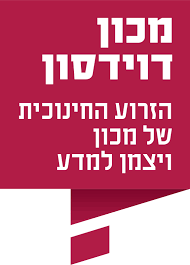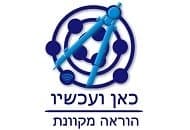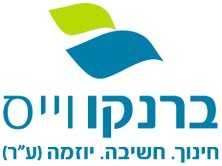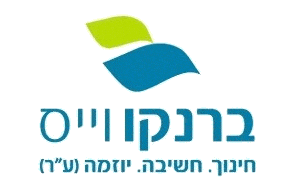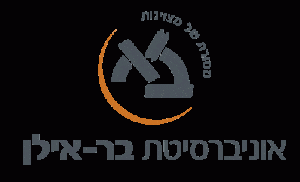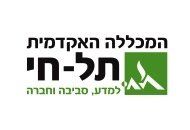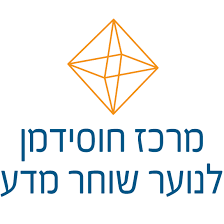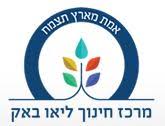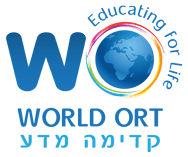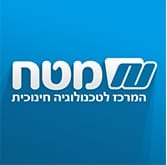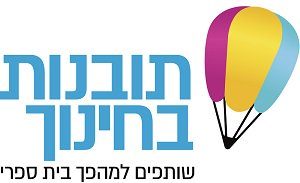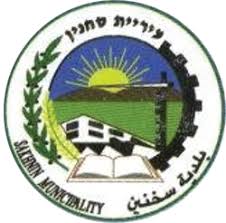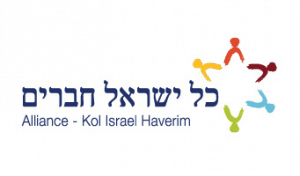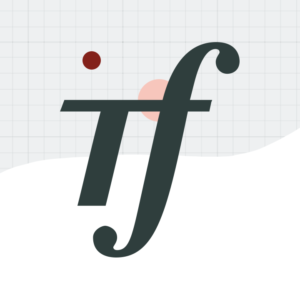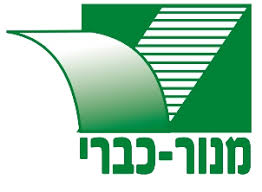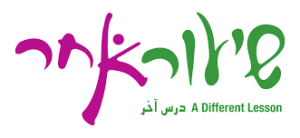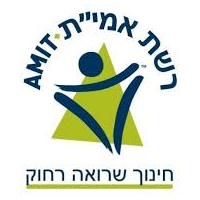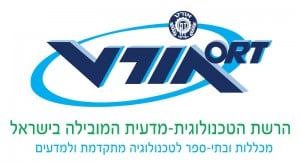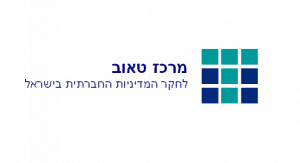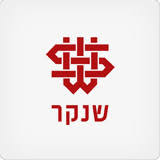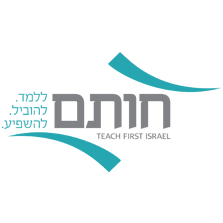In 2015, the Ministry of Education launched a public media campaign titled “Give Five,” encouraging students to choose five-unit tracks in mathematics; and set a national target to double the number of students enrolling in the five-unit track. Indeed, many teachers report that their classes are significantly larger than in the past, but that they […]
Here and Now was founded two years ago in order to translate the content and tools of the international Khan Academy project into Hebrew. The Khan Academy project offers video-based tutorials as well as practice-based assignments to allow for more personalized learning. With a seed grant from the Trump Foundation, the advanced mathematics elements in […]
The Branco Weiss School network was founded 15 years ago to focus on weaker socio-economic populations. Today, it is a small, periphery-based network of 8 fully-owned schools with 7,364 students, and another 4 schools for which they provide pedagogical instruction. Last year 878 students graduated 12th grade, of which 95 (approximately 11%) took the 5-unit […]
The Central District, one of eight districts of the Education Ministry, serves 320,000 students of 56 cities and local and regional authorities, and is responsible for 132 high schools which offer upper secondary studies. In 2013, 14,120 of its students participated in the mathematics matriculation, of whom 2,120 (15%) took the advanced five-unit exam and […]
A recent study commissioned by the foundation on the learning experiences of high school students of advanced-level mathematics, pointed to the important role of their teachers and parents. It revealed that parents tend to push their children to select the advanced track, even in cases in which the teacher has recommended otherwise, based on past […]
Over the last five years, in line with the national trend, schools in the North of Israel have experienced a drop in the rate of students graduating the advanced five-unit mathematics track. While the national percentage of those who graduated 12th grade fell from 14.1% in 2008 to 10.7% in 2012, in the Northern District […]
The formal learning of teachers typically occurs outside the classrooms, in college and university, although it is more effective when it is performed on the job and when it is based on practice. Therefore, even when teacher learning is conducted in an external environment, such as in lectures, seminars, workshops and communities of practice, it […]
In an effort to engage more students in physics studies, teachers are continuously seeking new and innovative teaching methodologies. They find out that their students are very different in their preferences and interests, as well as in their learning style and pace. Some students are independent learners and seek intellectual challenges, whereas others need more […]
The number of high school physics graduates in the Southern periphery of Israel is lower than the national average. On the other hand, the same geographic area has become a hub for the high-tech industry in recent years, as a consequence of special government incentives. One may assume that this new reality, in which state-of […]
Clinical teaching is based on the ability of the teacher to diagnose the knowledge and abilities of each and every student in the classroom, recognize their difficulties, and adapt the teaching to his or her needs. One year ago, the University of Haifa began a pilot experiment to develop a computerized diagnostic learning environment to […]
Master teachers are at the core of the Trump Foundation’s strategy. They tutor new teachers, lead their peers in the professional community, and develop teaching methods and learning material. One such example is physics master teacher Kobi Shvarzbord, recipient of the Trump Master Teacher Award 2013, member of the Trump Foundation Advisory Council and Master […]
Research has established that student-centered teaching, i.e. teaching that caters to the individual needs and capabilities of each student in the classroom, is highly effective but very difficult to practice, particularly in big and heterogeneous classes. Despite being proved significant, there is little professional development and teacher-training and almost no guidance, school support or data-driven […]
The database includes videotaped lessons by excellent teachers, assessment tasks, and specific explanations of issues which are typically difficult to learn. It covers curricular content in literacy, civic studies, mathematics and physics. Following the initial success of this enterprise, CET plans to expand the database to be used by students and teachers on a regular […]
The advanced level mathematics track in high school is known to be challenging – a track which many students drop out of during the course of their studies. The difficulty in persevering with advanced level mathematics is felt even more strongly among the socio-economic periphery of Israel. In these areas, it is more likely to […]
Sakhnin is a small city of 29,000 residents, located in the Lower Galilee in the Northern District of Israel. The city’s population is Arab, mostly Muslim, with a sizeable Christian minority. There are two public high schools owned by the municipality, which serve approximately 1,500 students. In 2013, 63.6% of the 12th grade students were […]
The Haredi (Ultra-Orthodox Jewish) community is a minority group in Israel with unique characteristics. Secluding themselves from modern society by choice, the Haredim have traditionally tended not to pursue careers in favor of religious study and thus maintain basic living standards, relying mostly on government subsidies. By holding strong positions in a coalition-based political system, […]
Over the last five years, the “Cracking the Glass Ceiling” program has been supporting and empowering female students and their learning, in order to raise the percentage of young women completing high school with a high quality matriculation, including advanced mathematics and a scientific major. The program includes supplemental enrichment activities, such as confidence-building workshops, […]
When a high school student decides which subjects to major in for matriculation, their selection is based on a number of factors. Similarly, when difficulties in the learning process arise, and they are debating whether to drop out or persevere, they weigh up a number of considerations. The ability to intervene and influence these important […]
Preferences for different science majors in upper secondary school seem to comply with a clear gender split. While male students comprise the majority in advanced physics and computer science electives, chemistry and biology classes are filled with predominantly female students. This spit continues to deepen in higher education and the labor market. Student achievements in […]
In the rural periphery of Israel, the study of Physics in secondary schools suffers from unique circumstances. Towns and villages are typically small in size, high quality teachers are few and far between, and laboratory equipment is scarce. Under these conditions the emergence of a regional Physics teaching center in the Western Galilee in recent […]
Mathematics and science teachers in Israel teach large, heterogeneous classes. Under these circumstances, diagnosing each individual student’s capabilities and difficulties in real-time and adapting teaching methods accordingly is challenging, even for the most skilled teachers. A consequence of this is that many teachers teach to the average student’s ability, and cannot dedicate the necessary attention […]
Several years ago, 15 small local authoritiesin the Eastern Galilee in the north of Israeldecided to map the pedagogical resources ofscience education in the region, and found a low number of students studying the sciences at advanced level. In order to confrontthis shortage, they decided to work together, to prioritize it as a joint goal […]
Physics is a demanding subject which requires high quality and creative teaching in order to attract and retain student interest. The accepted way of teaching Physics in Israeli schools is however very traditional, focusing on ‘chalk, talk and drill’ pedagogy. This method is not very popular both among excelling science students seeking intellectual challenges, and […]
The study of advanced Mathematics and Physics in Israeli high schools is diminishing. The number of students, who choose to study these subjects for high-level matriculation and perform well, is limited due to a number of factors. One of these factors is that most schools do not set a clear objective to continuously improve their […]
In most schools physics is taught as part of an integrated science subject until the tenth grade. Most science teachers at this level tend to have a background in biology, not physics. As a result, physics is somewhat sidelined and many capable students lack sufficient knowledge of the subject, which leads them to abstain from […]
Israel is facing a consistent and continuous decline in the number of high school graduates taking the advanced track of mathematics, from an average of 15% of the cohort to approximately 10%. There are various causes for this phenomenon, some of which relate to the perception by students and their parents, as well as by […]
Teach First Israel (TFI) recruits high achieving university graduates to teach for at least two years in challenging schools, and ultimately become leaders working to improve access to quality education. It is one of a number of such programs operating around the world, based on the highly successful model, Teach for America.In order to address […]
Khan Academy is an international initiative which was originally created to help students with their homework assignments. Founded by Salman Khan, a former high-tech engineer, the US-based project started by uploading ten-minute video clips to You-Tube, in which Khan himself presents and explains a number of different subject areas in a fun and interesting way. […]
There is a growing shortage of Mathematics and Physics teachers all over Israel. Older generations are retiring, and newly qualified engineers, scientists and mathematicians have many tempting alternatives to the teaching profession. This shortage means that many schools cannot open Advanced Science tracks, nor do they have much choice when hiring a Mathematics teacher. In […]
Amal is a veteran school network, which was established in 1928. Today it serves 40,000 students in 128 schools across Israel’s localities and communities, particularly in the social and geographic periphery. In recent years the network leadership noticed that performance in advanced mathematics of its students must improve. Although 27 of its 30 high schools […]

